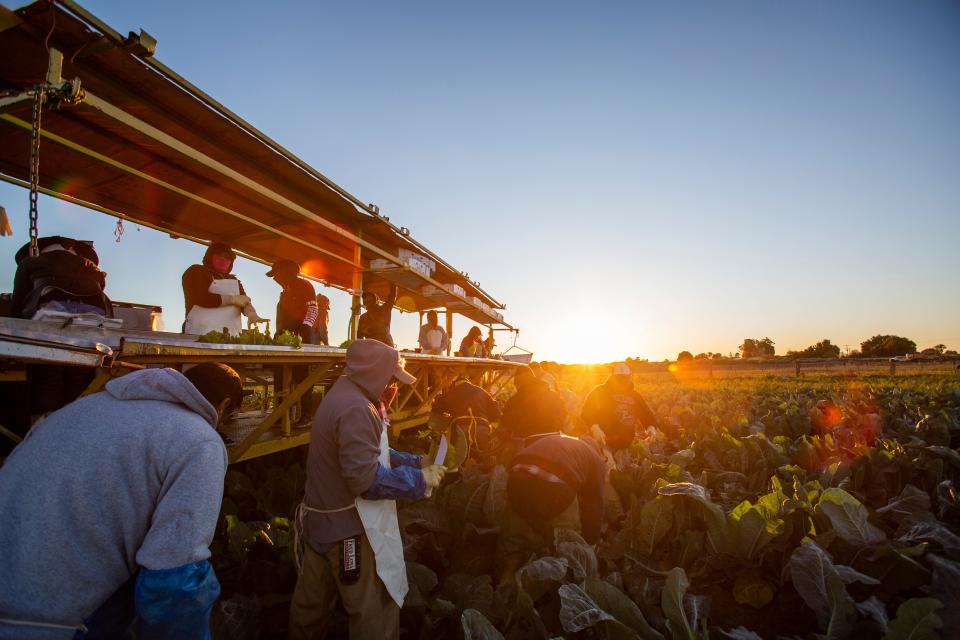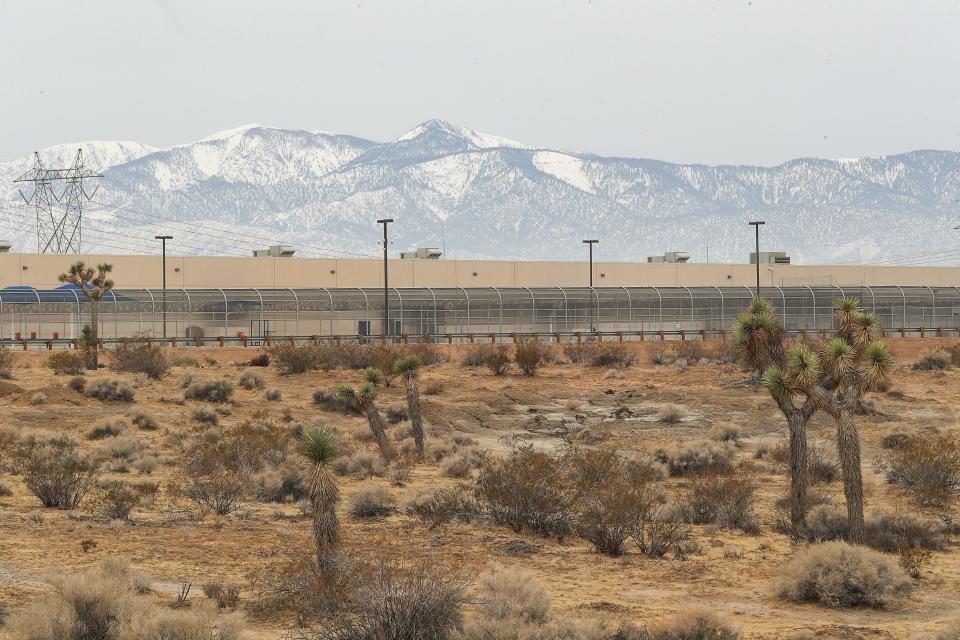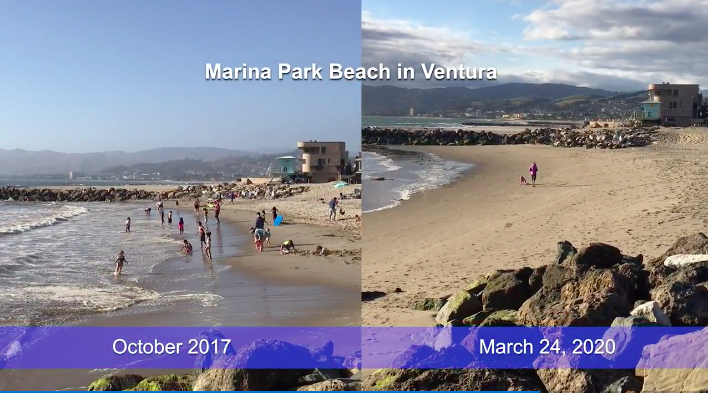In CA: A call to donate stimulus checks to support undocumented families
Happy Friday! Filling in for Arlene Martinez, I'm Rebecca Plevin, immigration reporter for The Desert Sun in Palm Springs. Today, I've got the news you need to know from around the Golden State, with a special focus on California's immigrant community.
But first, more than 95,000 nurses at 139 hospitals in 13 states were slated to take part in protests today, on International Workers' Day, to demand better protections during the coronavirus pandemic, Nicole Hayden reports for The Desert Sun. The holiday comes this year as the state records more than 50,000 confirmed cases of COVID-19 and more than 2,000 deaths as a result of the virus.
“Nurses signed up to care for their patients. They did not sign up to sacrifice their lives on the front lines of the COVID-19 pandemic,” NNU Executive Director Bonnie Castillo said in a press release. “On this day that celebrates the labor movement and working people, union nurses are standing up to demand the protections they need now!”
Stay safe and informed with news and resources from across the USA TODAY Network and beyond: Sign up to receive In California in your inbox. While you're at it, sign up to get Climate Point, a weekly newsletter that digs into everything climate, energy and the environment.
Fund calls on people to donate stimulus checks to undocumented immigrants

Would you donate your $1,200 stimulus check to undocumented immigrants who aren’t eligible to receive the federal assistance?
Undocumented people — who comprise an estimated one in 10 California workers — are ineligible for the stimulus funding or unemployment insurance. Now, with millions of Californians laid off or working fewer hours as a result of the coronavirus pandemic, many undocumented people and their families are struggling and have no safety net.
The leaders of 805 Undocufund, a collective effort among community organizations in Ventura and Santa Barbara counties that provides disaster relief to undocumented people and families, are calling on people who haven’t been financially impacted by the crisis to donate their federal stimulus checks, reports Erin Rode for the Ventura County Star.
“We’re thinking of it in terms of equity and sharing the dollars that people receive from the federal government, because it’s about supporting undocumented families when they’re not receiving any other type of support,” said Eder Gaona-Macedo, executive director of Future Leaders of America.
So far, the fund has distributed about $300,000 to 300 families in Ventura and Santa Barbara counties, prioritizing the 65% of applicants who were completely laid off. The fund mimics stimulus payments by providing around $1,200 per family.
In the Coachella Valley, meanwhile, a group of young people have launched a GoFundMe campaign to provide food baskets and food gift cards to farmworkers. As of Friday, the fund had raised nearly $9,800.
Just 6 of nearly 1,300 immigrants at Adelanto detention center tested for virus, ICE says

More than 500 of the approximately 30,000 immigrants detained by U.S. Immigration and Customs Enforcement have tested positive for COVID-19. As of Friday afternoon, 522 of 1,073 detainees tested — about 49% of those tested — had confirmed cases of the virus, according to ICE. Of those, 522 positive cases, 105 are at Otay Mesa Detention Center in San Diego.
As of Friday morning, however, there were no confirmed cases of the virus at the Adelanto ICE Processing Center in the Mojave Desert, one of the county’s largest immigration detention centers. But as I reported today for The Desert Sun, a court filing reveals that very few detainees there have been tested for the virus.
A total of six of the 1,295 people held at the 1,940-bed facility had been tested as of last Thursday, according to an ICE official. He said the testing protocol at Adelanto follows guidance issued by the Centers for Disease Control and Prevention.
“You can’t have confirmed cases if you don’t test people,” said Minju Cho, an attorney for the ACLU of Southern California. “There may well be an outbreak at the facility and we would not even know about it, because the testing to identify such an outbreak is not being done.”
Families in border cities hit by coronavirus economic slowdown

South of the border, meanwhile, families in Mexicali and Juarez are struggling as the coronavirus pandemic has caused a global economic shutdown, sending oil prices and the value of the Mexican peso crashing, report Omar Ornelas of The Desert Sun and Lauren Villagran of the El Paso Times.
That means families across the Mexican borderland — hundreds of thousands of whom have been furloughed, laid off or surviving on sharply reduced wages — are stuck with a currency whose purchasing power is evaporating.
“With what I used to spend on groceries, it’s nowhere near enough now,” Josefina Ochoa said outside of a Mexicali supermarket. “You have to be careful. If you bought ham before, now you buy bologna.”
Speaking of the pandemic making waves across the border: The coronavirus is making it harder for L.A. restaurants to serve essential Oaxacan dishes like tlayudas, moles and chapulines, Patricia Escárcega reports for the L.A. Times.
Before the coronavirus hit California, Escárcega writes, Ivan Vasquez, the owner of a Oaxacan restaurant, was spending about $2,525 on Oaxacan ingredients and delivery fees every week. But with lunch and dinner orders down dramatically, Vasquez is now spending less than half what he used to on Oaxacan ingredients.
“This is affecting a whole chain of people working with us,” he said.
A trip to China, a quarantine: How coronavirus coverage began in Ventura County

Arlene asked Ventura County Star reporter Wendy Leung to share about some of the hundreds of stories hard-working journalists there have written since the coronavirus began. The Star, like newsrooms across the USA TODAY Network, has been working tirelessly to bring readers critical updates and dispatches from the front lines.
It costs money to do that, and our company, mirroring the industry, has seen sharp declines in revenue. Please consider subscribing to your local media outlet so we can keep our vital work going, during the coronavirus and long after it's passed.
Without any further adieu, here's Wendy:
"In Ventura County, The Star knew its team would be writing about coronavirus for the long haul in late February. A traveler who had just come from Hubei, China, would stay in a quarantine site at Naval Base Ventura County. He was not a coronavirus patient and showed no symptoms but the story alarmed some readers.
On March 10, reporter Cheri Carlson helped organize a meeting to coordinate coronavirus coverage. A question we wanted to ask: Are local groups canceling events such as the St. Patrick’s Day parade? The answer was no.
Three days later everyone in the newsroom was packing up, preparing to work from home.
At that time, the stories we were writing became obsolete the next day. Sometimes news would change hours after publication. A county superintendent said in an interview that a school might close if one of its students or teachers tested positive for the virus but it would be limited to that school, not an entire district. Two days later, the superintendent announced that all schools of the county’s 20 districts would shutter.
Our team of reporters and photographers went straight to work telling the story of a virus that was shutting down the economy faster than we could type. We wrote about a survivor who described pain she had never felt before and we wrote about a man who died alone with family on the other side of a glass window.
We wrote about the farmworkers who are working through the pandemic and the efforts to provide them with hazard pay and extended sick leave. We also looked through existing video footage we had during more crowded times and returned to shoot new footage showing the stunning contrast of a county on lockdown. We even showed our readers where to buy toilet paper. Hint: Not at a supermarket.

If there is a silver lining to all this — and we’re always looking for one these days — it’s that an empty newsroom has finally allowed our landlord to tent the building for termites. We don’t know what the world will look like when working from home ends but we know at least there won’t be termites."
In California is a roundup of news from across USA TODAY Network newsrooms. Also contributing: LA Times.
This article originally appeared on USA TODAY: In CA: A call to donate stimulus checks to support undocumented families who won't get them

